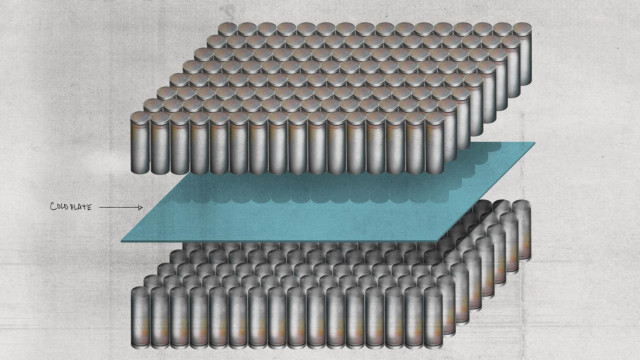In a world where the race for electric vehicle (EV) dominance is fiercer than ever, Rivian has made a groundbreaking leap with its new battery technology, pushing the boundaries of EV range and sustainability. According to Bloomberg Green, the global EV market is projected to grow at a compound annual growth rate (CAGR) of 21.7% from 2022 to 2030. As the demand for cleaner and more efficient transportation solutions rises, Rivian’s innovations could set new standards in the industry. In this article, we’ll delve into how Rivian’s new battery tech enhances EV range and sustainability, explore its potential impact on the market, and provide practical insights into the future of electric mobility.
Rivian’s Battery Breakthrough: What It Means for EV Range
Unpacking the Technology
Rivian’s new battery technology is a game-changer, promising to extend EV range significantly. Utilizing advanced solid-state battery technology, Rivian is making strides where traditional lithium-ion batteries fall short. Solid-state batteries replace the liquid electrolyte found in lithium-ion cells with a solid material, which increases energy density and reduces the risk of overheating. This means:
- Extended Range: Rivian’s batteries could potentially offer a 30% increase in range compared to conventional lithium-ion batteries, pushing some models beyond the 400-mile range mark.
- Faster Charging: Due to their high conductivity, these batteries can support faster charging speeds, reducing downtime at charging stations.
According to a report by MIT Technology Review, solid-state batteries could revolutionize the EV industry by 2025, and Rivian is at the forefront of this transformation.
Impact on Sustainability
Rivian’s commitment to sustainability is evident in their new battery technology. The adoption of solid-state batteries brings several environmental benefits:
- Reduced Resource Use: Solid-state batteries require fewer raw materials, such as cobalt and nickel, which are typically mined under environmentally and ethically questionable conditions.
- Longer Lifespan: These batteries tend to have a longer lifespan, meaning fewer replacements and less waste over time.
- Recyclability: The solid components are easier to recycle than their liquid counterparts, closing the loop on the battery lifecycle and reducing the environmental impact.
InsideEVs highlights that with the EV market’s rapid growth, sustainable battery technology will be crucial in minimizing the environmental footprint of electric vehicles.
Rivian vs. Competitors: How Does It Stack Up?
Comparison with Tesla and Lucid Motors
When comparing Rivian’s new battery technology with industry giants like Tesla and Lucid Motors, several factors come into play:
- Range: While Tesla’s Model S offers a range of around 405 miles, Rivian’s new tech could push its R1T and R1S models to similar or greater distances.
-
Charging Speed: Rivian’s solid-state batteries promise faster charging times than Tesla’s Supercharger network, which is a critical factor for consumers.
-
Sustainability: Though Lucid Motors has also made strides in sustainability, Rivian’s focus on solid-state technology gives it a potential edge in reducing the environmental impact.
With these advancements, Rivian is not only a competitor but a leader in the quest for sustainable EV solutions.
Where to Buy and What to Expect
Rivian’s R1T and R1S models, equipped with the new battery technology, are available for pre-order through their website and select dealerships. As production ramps up, expect wider availability in North America, followed by global markets.
- Pricing: Starting at $73,000 for the R1T and $78,000 for the R1S, these vehicles offer a competitive price point given their innovative features.
-
Availability: Rivian plans to increase production in 2024, with a goal to deliver over 200,000 units annually by 2025.
The Future of Electric Mobility with Rivian
Practical Tips for EV Owners
For those considering making the switch to an electric vehicle, understanding how to maximize your EV’s range and sustainability is crucial. Here are some tips:
- Optimize Charging Habits: Utilize fast-charging stations for quick top-ups but rely on Level 2 home chargers for routine charging to extend battery life.
-
Regular Maintenance: Keep up with scheduled maintenance to ensure your EV performs optimally and efficiently.
-
Stay Informed: Follow updates from reliable sources like Electrek and CleanTechnica to stay informed about the latest in EV technology and infrastructure.
Rivian’s advancements not only offer improved performance but also underscore the importance of sustainable practices in the EV industry.
Conclusion: A New Era for Electric Vehicles
Rivian’s new battery technology represents a pivotal shift in the electric vehicle landscape, promising enhanced range and sustainability. As the EV market continues to expand, innovations like these will play a crucial role in shaping a cleaner, more efficient future for transportation. Are you ready to join the electric revolution? Share your thoughts and experiences in the comments below.
Looking ahead, it’s clear that the push for sustainable energy solutions is more than a trend—it’s the future. With companies like Rivian leading the charge, the next decade promises exciting developments in the realm of electric mobility. Whether you’re an EV enthusiast or a curious newcomer, staying informed about these advancements will be key to understanding and shaping the future of transportation.

